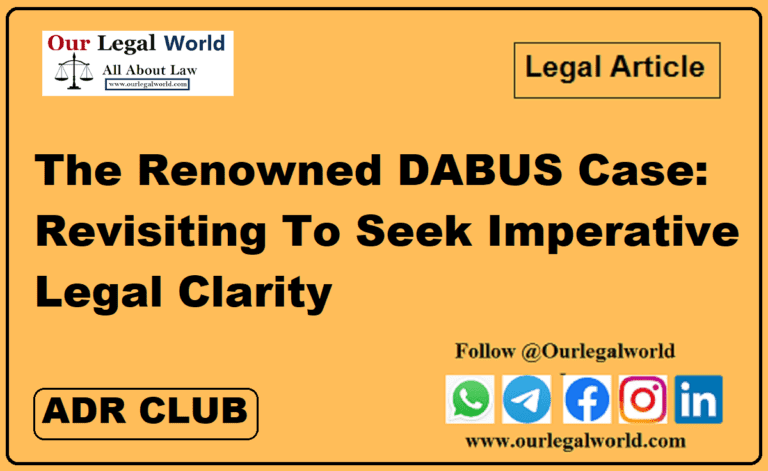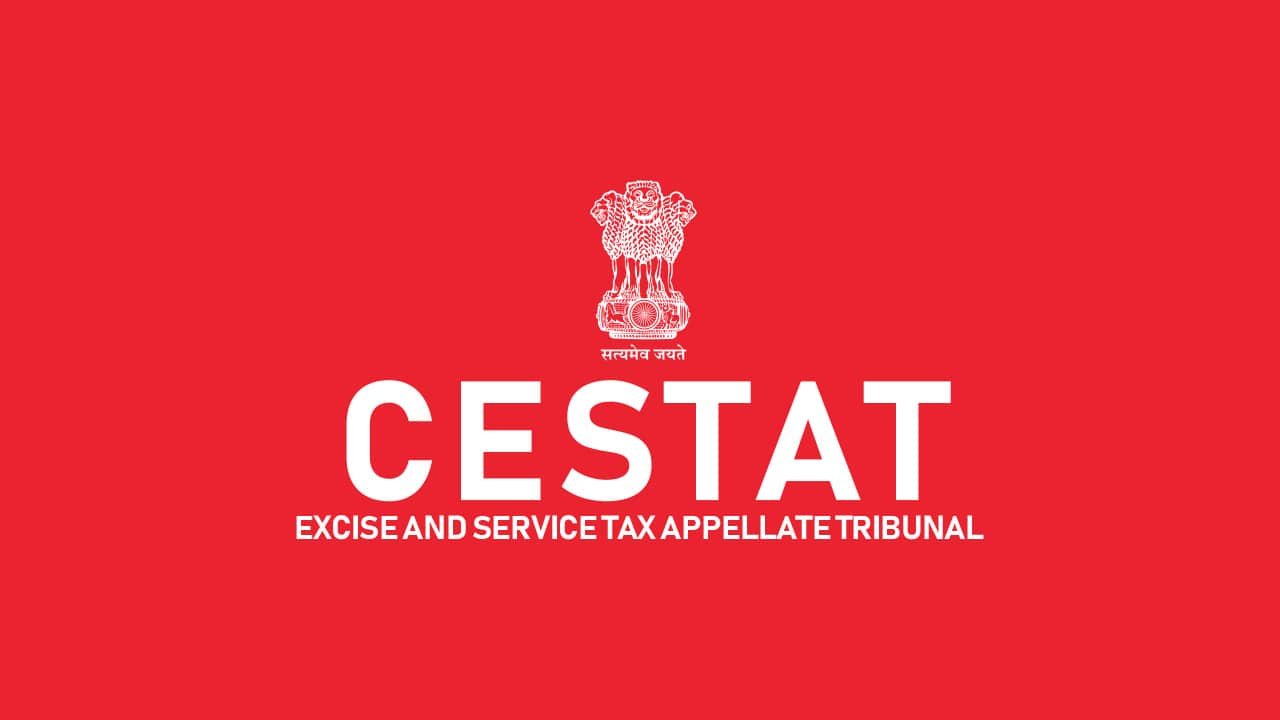The Chairman Railway Board & Others vs. Chandrima Das: Case Analysis
Case Name: The Chairman, Railway Board & Others vs Mrs Chandrima Das & Others
Court: Supreme Court of India
Bench: R.P. Sethi, S. Saghir Ahmad
Petitioner: The Chairman, Railway Board & Others.
Respondent: Mrs. Chandrima Das & Others.
Introduction:
The Chairman, Railway Board & Others vs Mrs. Chandrima Das & Others is a leading case law which clarifies the difference between Public Law & Private Law, confirms the guarantee of certain fundamental rights to citizens as well as non-citizens and the applicability of UDHR & U.N Resolutions in domestic laws.
It is a case where a Bangladeshi women victim of brutal gang rape claimed compensation and several other reliefs for the anti-social activities of the railway employees.
The case was first heard in High Court of Calcutta where the claimant was guaranteed compensation of Rs. 10 Lakh, the respondent not being satisfied with the decision of High court approached the Supreme Court challenging the High Court’s decision.
The Supreme Court upheld the decision of Calcutta High Court and held the Government of India vicariously liable for the act of the Railway Employees.
Key Words: Rape, Public & Private Law, Fundamental Rights, Human Rights, Public Interest Litigation, Locus Standi, Sovereign Powers, Vicarious Liability.
Important Statute: Constitution of India
Facts of the Case:
• Smt. Hanuffa Khatoon, a Bangladeshi Citizen, arrived at Calcutta Railway Station on 26th February1998 to board Jodhpur Express. She had her ticket in waitlist and so she was asked to wait in the Ladies Waiting Room by the train ticket examiner.
• At about 5.00 pm two persons Mr. Ashok Singh and Mr. Siya Ram claiming themselves to be influential persons of Railways took her waiting ticket and confirmed her reservation in S-3 of the Jodhpur Express.
• Few hours later Mr. Siya Ram approached Mrs. Hanuffa Khatoon to accompany a boy named Kashi for the food in a restaurant. She agreed and went with the boy. After the lunch she came back to the Ladies Waiting Room.
• At about 9.00 pm Ashok Singh and Rafl Ahmed advanced towards her and asked her to accompany them to Yatri Niwas for resting there for few hours.
• Initially she doubted them but after being assured about her safety by the lady attendant of Ladies Waiting Room, she followed them.
• She was taken in room no. 102 of Yatri Niwas booked in the name of Ashok Singh, where three more men named Lalan Singh, Awdesh Singh, Sita Ram Singh were already present.
• Hanuffa Khatoon suspected something peculiar and unusual but soon Ashok Singh forced her into the room. The four men raped her.
• As soon as she gained consciousness she came back to the platform where she found Siya Ram Singh conversing with Ashok Singh.
• Seeing the plight of Hanuffa Khatoon Ram Singh assured her to be on his side and pretended to help her. As it was past midnight and the train had already departed Ram Singh requested her to his residence for that night assured her about the presence of his wife and children.
• Trusting Ram Singh, she accompanied him. He took her to a rented flat of Ashok Singh and raped her.
• On hearing the cry and violent resistance of Hanuffa Khatoon the landlord of the building rescued her with the help of Jorabagan Police.
• Mrs. Chandrima Das an advocate filled the petition on her behalf.
Issue:
Whether the Central Government would be liable to pay compensation to Hanuffa Khatoon for the act of the railway employees?
Arguments of Appellant:
• The first contention raised is that the proceedings for claiming damages under Article 226 of Constitution of India could not be awarded as the petitioner should have claimed the remedy under Private Law domain not in the realm of Public Law.
• The second contention raised is based on the concept of Locus Standi. Mrs. Chandrika Das was a practising advocate and was in no way associated with the victim. She therefore loses her right to file petition under Article 226 of Constitution.
• The third contention raised is Smt. Hanuffa Khatoon is a foreign nationalist and so she cannot claim for violation of her fundamental rights guaranteed in the Indian Constitution.
• The last contention raised is that the Central Government could not be held vicariously liable for the tortious act of their employees. Since rape cannot be said to be an official act, the act was committed in the personal capacity of the railway employees and thus no action could lie against the Central Government even under the Law of Torts.
Arguments from Respondent:
• As regarding the first contention it was argued that where public functionaries are involved and the matter relates to the violation of Fundamental Rights or the enforcement of public duties, the remedy would still be available under the Public Law notwithstanding that a suit could be filed for damages under Private Law.
Public Law & Private Law
Public Law incorporates those cases which affects public at large.
Private Law incorporates those cases that affects the rights and obligations of individual and families i.e a private individual and does not affect the society at large.
The present case it is not a mere matter of violation of an ordinary right of a person but gross violation of Fundamental Right of the victim. Rape is a heinous crime which is not a wrong against an individual but to a society at large.
Also Read: The University Of Mysore And Anr vs C. D. Govinda Rao and Anr
Case Law
BODHISATWA GAUTAMI VS. SURBHA CHAKRABORTY
The complainant Surbha Chakraborty was a student of Baptist College and the accused Bodhisatwa Gautami was a lecturer in that college. The accused induced the complainant to cohabited with him and gave a false assurance of marriage. He also fraudently went through a certain marriage ceremony and dishonestly made the complainant to believe that she was his lawfully wedded wife and often raped her.
Seeing this pitiable condition of women in the society Mr. Justice Saghir Ahmed observed that “Unfortunately, a woman in our country, belongs to certain disadvantaged position on account of several social barriers and therefore have been victims of tyranny at the hands of men.Women also have right to life and liberty, they also have the right to lead an honourable and peaceful life. Rape is crime against basic human rights and is violative of victims most cherished fundamental rights contained in Article 21.”
Thus, the contention of the appellant that the petition under Public Law is not maintainable is denied and hence this petition is acceptable under Public Law domain. Moreover, the Public Law remedies have also been extended. In various decisions the Supreme Court have awarded relief in form of compensation to the victims who were injured and their rights have been violated at the hands of the Government officers.
• Denying the second contention of the appellant it could be said that the petition filed before the Calcutta High Court was not only to claim damages but also to highlight the plight of a women in society where she was denied the basic human rights. The relief in the petition also included the relief for eradicating anti-social and criminal activities of various kinds at Howrah Railway Station of Calcutta. The true nature of the petition, therefore, was that of a petition filed in public interest.
Concept of Locus Standi and the P.I.L under article 226
The tradition rule is that a person whose constitutional or legal right is infringed can apply for relief under Article 226 of the constitution. The court has however considerably liberalised the above rule of locus standi and has allowed public spirit citizen to maintain writ petition for the enforcement of fundamental and statutory rights of any other person if that person is unable to invoke the jurisdiction of the High Court.
The Public-spirited citizen having faith in rule of law are rendering great service by espousing causes of public nature. They cannot be ignored or overlooked on technical yardsticks of rule of locus standi.
Case Law
S.P Gupta Vs. Union of India
The supreme Court has held that any member of public having sufficient interest can approach the court for enforcing constitutional or legal rights of other persons. In the present case the court upheld the right of lawyers to be heard on matter affecting judiciary.
Gaurav Jain Vs. Union of India.
The petitioner, a pubic spirited advocate filed a Public Interest Petition seeking appropriate direction from government for improvement of plight of prostitutes. The advocate’s petition was considered as a P.I.L by the Supreme Court.
Having regard to the nature of the petition filed by respondent and the relief claimed therein it can be affirmed that this petition was filed in public interest which could legally be filed by the respondent Mrs. Chandrima Das.
• As regarding the contention that fundamental rights are available only to citizens it has been argued that the claim for enforcement of fundamental right to a non-citizen and the claim for compensation & reliefs could be granted in Public Law on the two ground
Domestic Jurisprudence based on Constitutional provisions
- Human Right Jurisprudence based on the Universal Declaration of Human Rights, 1948.
- Human Right Jurisprudence
- The concept of human rights is propounded on the principle that there are few rights which are possessed by all the human being irrespective of their religion, race, nationality, origin, language or any other distinction.
- The Universal Declaration of Human Rights (UDHR), proclaimed by the United Nations in 1948 states that: “All human beings are born free and equal in dignity and rights,” and that “recognition of the inherent dignity and of the equal and inalienable rights of all members of the human family is the foundation of freedom, justice and peace in the world.”
- The various Articles stated in UDHR is universally applicable to all the persons.
- Recognizing the present situations of inhumane behaviour with women the need was felt for the universal application of the rights and principles with regard to equality, security and dignity for them and so the Declaration on the Elimination of Violence against Women was enacted.
- The International Covenants and Declarations as adopted by the United Nations have to be respected by all signatory States and India being a part of it is bound to uphold its principles.
Domestic Jurisprudence
Our Constitution is a reflection of the principles of UDHR. It confirms the guarantee of basic and certain fundamental rights to all persons whether citizens or aliens. The chapter dealing with the Fundamental Rights is contained in Part III of the Constitution is in consonance with the various articles of the UDHR, which serves purpose to safeguard the basic human rights. The word life used in article 21 of constitution is recognized in same sense as understood in UDHR,1948.
The fundamental rights are guaranteed to all the “citizens” of the country but there are few fundamental rights which are available to all “persons”.
- Article 14 of the Indian constitution guarantees equality before law and equal protection of law is available to both citizens and non-citizens
- Article 20 of the Indian constitution states right to protection in respect of conviction for offences is guaranteed to all persons.
- Article 21 guarantees right to life and personal liberty not only to citizens but also to non-citizens of country.
- Article 22 guarantees right to protection against arbitrary arrest and detention to all persons.
All these articles 20, 21 & 22 are in consonance with Article 2,3, 7 & 9 of the UDHR.
In the present case Smt. Hanuffa Khatoon who was a citizen of Bangladesh was subjected to physical violence and inhumane treatment by the railway employees which was a clear violation of her Right to Life guaranteed in Indian Constitution.
Right to life is not confined to a mere physical existence but it includes within its ambit Right to live with dignity and decency, which was denied to her by outraging her modesty.
Case Law
National Human Right Commission VS. State of Andhra Pradesh
It was held that State is bound to protect the life a liberty of every human being whether he is a citizen or non-citizen. It is the constitutional duty of state to safeguard the life and liberty of every being whether he is a citizen or non-citizen.
Chandra Raja Kumari vs. Police Commissioner Hyderabad It was held that right to live also includes right to live with human dignity and therefore holding out beauty contests is repugnant to dignity or decency of women and is thus violative of Article 21 of the Constitution.
Also Read: Article 21 of the Constitution of India- Right to Life and Personal Liberty
The Universal Declaration of Human Rights, International Covenant on Civil and Political Rights has recognized that human beings have dignity inseparable from them.
On this principle, even those who are not the citizens India and come in this country as visitors or in any other capacity will be entitled to the protection of their lives in accordance with the Constitutional provisions. They also have a right to “Life” in this country. Thus, they also have the right to live a dignified life.
• The last contention that Central Government could not be held vicariously liable for the act as it was not performed in course of employment is denied.
As under 300 of Constitution of India the Government of India may sue and be sued by name of name of Union of India and the Government of State may sue and be sued by name of State in relation to their respective affairs in like cases as Dominion of India. Thus, if the tortious act committed by servants was in discharge of non-sovereign function the State would be liable for the same.
It means if the tortious act committed by servant in discharge of duties assigned to him during course of employment an action for damages would lie on State.
Case Law
Vidhyawati VS. Lokumal
In this case the plaintiff’s husband died after being knocked down by government jeep car which was driven rashly by the government employee. It was held that Government State was liable for the tortious act of its employees.
Ramjan vs. State of Rajasthan
In this case four women were injured by throwing acid on them. It was held as deprivation of right to live with human dignity.
It has been held that it is duty of State to prevent crime and protect the fundamental right deprivation of fundamental right is a claim for relief in public law in addition to private law remedy.
The court also said that the State could not be allowed to take the defence of filing civil suit for compensation against the private person who has caused the injury.
In the present case the Railway Employees committed tort for which the Union Government could be held liable for their act.
Judgement:
The court was in total agreement with the reasoning giving by the respondent and held the Union Government to be vicariously liable for the wrong committed by the Railway Employees. Establishing and maintaining the Yatri Niwas at various railway stations to provide lodging and boarding facilities to various passengers is a part of the commercial activity of the Union of India. If any of their employees commits an act of tort the Union Government be held vicariously liable in damages to the person wronged by those employees. Thus, appeal having no merit was dismissed with the observation that the amount of compensation shall be made over to the High Commissioner for Bangladesh in India for payment to the victim, Smt. Hanuffa Khatoon. The payment to the High Commissioner shall be made within three months.
Conclusion:
Thus this case is a landmark case which confirms the guarantee of Fundamental Rights incorporated in Article 21 of Constitution to all persons whether citizens or non-citizens and clarifies the concept that Government could be made vicariously liable and a relief can be claimed under public law domain for enforcement of Fundamental Rights by even a non-citizen of India .
References:
- https://indiankanoon.org/
- https://lawlex.org/case-summary/the-chairman-railway-board-others-vs-mrs-chandrima-das-others/20378
- https://india.lawi.asia/the-chairman-railway-board-and-ors-v-mrs-chandrima-das-and-ors-2/
Written by Deepanshi Jain








